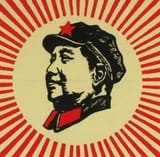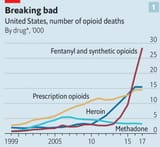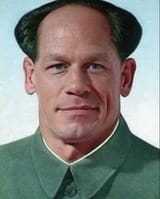Anonymous
(ID: 3na3Z1/R)
 8/12/2025, 10:38:25 PM
No.512892619
>>512892775
>>512893075
>>512893552
>>512895040
>>512896356
>>512901424
>>512902569
8/12/2025, 10:38:25 PM
No.512892619
>>512892775
>>512893075
>>512893552
>>512895040
>>512896356
>>512901424
>>512902569
How Mao banned Opium
lmao.jpg
md5: 7094080f... 🔍

History lesson;
Before Communism, by some estimates 1/3rd of all Chinese men living in port cities were addicted to opium. Mao solved this domestically with a simple two-part policy. First, opium dealers if convicted would be executed; secondly, anyone caught with opium would be assumed to be a dealer unless they informed on their dealer.
Mao also directed the Red Army to make cross-border incursions into the 'Golden Triangle' to break up smuggling gangs. This was necessary because remnants of the KMT-nationalists had become opium smuggling gangs. The KMT lost public support in part because of their permissive attitude towards opium; in fact the KMT taxed opium and relied on the revenue to fund their army.
China's opium problem was a result of being forced to import opium after losing the Opium Wars (1839-1842 and 1856-1860). This entire trade became monopolized by one family, The Sassoons, who were Jewish merchants that fled Baghdad after looting the treasury. The Scottish company Jardine & Matheson initially provided some competition, but they specialized in smuggling which was no longer necessary once China was forced to legalize opium.
Before Communism, by some estimates 1/3rd of all Chinese men living in port cities were addicted to opium. Mao solved this domestically with a simple two-part policy. First, opium dealers if convicted would be executed; secondly, anyone caught with opium would be assumed to be a dealer unless they informed on their dealer.
Mao also directed the Red Army to make cross-border incursions into the 'Golden Triangle' to break up smuggling gangs. This was necessary because remnants of the KMT-nationalists had become opium smuggling gangs. The KMT lost public support in part because of their permissive attitude towards opium; in fact the KMT taxed opium and relied on the revenue to fund their army.
China's opium problem was a result of being forced to import opium after losing the Opium Wars (1839-1842 and 1856-1860). This entire trade became monopolized by one family, The Sassoons, who were Jewish merchants that fled Baghdad after looting the treasury. The Scottish company Jardine & Matheson initially provided some competition, but they specialized in smuggling which was no longer necessary once China was forced to legalize opium.





